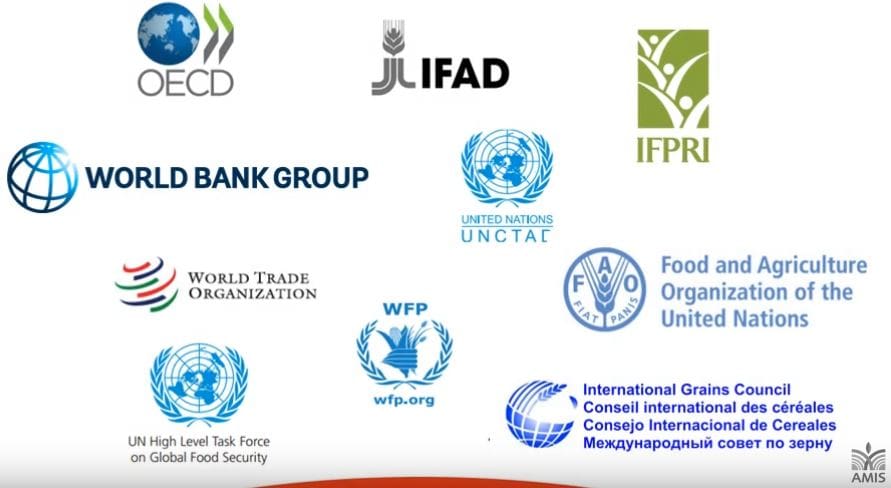
The Agricultural Market Information System (AMIS) is an inter-agency platform to enhance food market transparency and policy response for food security. Source: AMIS
THE Agricultural Information Market System (AMIS) rapid response forum met last month with objectives including enhancing agricultural trade, managing the global supply chain and improving health, economic and social outcomes.
It took stock of the uncertain economic and trade environment caused by the global pandemic.
Pandemic threat
IMF estimates for 2021 point to a 6-per-cent world economic growth while WTO projects an 8pc rebound in the volume of merchandise trade.
However, renewed outbreaks already threaten to undermine this outlook.
A resilient, inclusive, and sustainable global economic and trade recovery remains conditional upon the pace and successful deployment of vaccines worldwide.
Defeating the socioeconomic impacts of the pandemic and fully restoring trade flows will require strong international policy dialogue, information exchange, cooperation mechanisms and coordinated solutions in a range of WTO disciplines.
Ongoing efforts to strengthen existing multilateral trade rules would contribute to reactivating the global economy.
In reforming agriculture trade disciplines, the well-known overall policy spectrum remains under mandated negotiations aimed at a market-oriented trading system.
While government assistance in the form of direct payments, income support, public stockholding, and food assistance continues to be rolled out to counter health, social, economic, and food-security impacts, dismantling harmful support policies remains a clear priority.
A multilateral outcome to exempt World Food Programme (WFP) humanitarian food procurement from export restrictions is also potentially within reach.
Trade concerns
A plethora of concerns continue to be raised on restrictive sanitary and phytosanitary (SPS) measures, including import restrictions, pesticide policies and maximum residue levels, testing and certification for GMO-derived food, listing and registration requirements imposed on export establishments, delays in approval procedures, COVID-related port-of-entry rejections, reportedly applied without sufficient scientific evidence.
Structured peer review and monitoring mechanisms are proving instrumental in resolving tensions, building common ground, and hence contributing to regulatory convergence.
In addition, fresh discussions were launched on ways to reaffirm the fundamental principles of the SPS Agreement in relation to the challenges facing sustainable agriculture in the 21st century.
On the ground, the Standards and Trade Development Facility (STDF) proactively catalyses public and private support to assist farmers, producers, traders and governments in developing countries to meet SPS requirements, based on international standards; identifies and promotes good practices to improve SPS capacity development outcomes on cross-cutting topics, including public private partnerships, use of evidence to prioritize SPS investments, electronic SPS certification and good regulatory practice.
Since COVID-19 was declared a global pandemic, the STDF introduced a range of actions to manage the risk of COVID-19 across its work and emphasized the importance of investments to support economic recovery and longer-term resilience against future outbreaks of pests and diseases.
E-commerce helps trade
While the pandemic accelerated countries’ adoption of IT-based tools and technologies, the progressive implementation of the Trade Facilitation Agreement is expected to further expedite the movement, release and clearance of goods, foster cooperation between customs authorities, and streamline customs management.
An enabling and inclusive legal framework for e-commerce would also support the emerging digital economy. In this regard, the recent finalisation of a “clean text” on e-signatures and authentication constituted a major breakthrough.
Source: Market Monitor May 2021



HAVE YOUR SAY